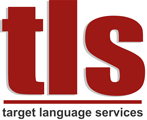
12 Tips for doing the IELTS exam
In this post, we give you 12 important tips for the IELTS exam, which will help you gain more confidence and raise your score when it comes do doing the exam.
The tips are for the 4 language skills in the exam: Reading, writing, listening, and speaking.
12 tips for doing the IELTS exam which will improve your score.
Tips for the reading paper:
1.Optimise your time during the IELTS exam
Make sure you are familiar with the questions for each section before you read the text and focus on what is required to answer these only.
Remember the answers will appear in the text in the order of the questions if the questions are numbered. This way you can answer the questions in the order the information appears in the text.
In the exam there may be tasks in which you have to match headings with paragraphs. In this task type the headings will be represented by letters as they are not ordered chronologically.
2. Practice reading under time constraints
The reading paper is often underestimated as test-takers often feel this is the easiest of the four skills. However, one of the challenges test-takers face is the time restrictions for this part of the exam.
You need to read 3 texts of approximately 7-1000 words each, answer all the questions provided and transfer your answers to an answer sheet within 1 hour.
3. Read texts which are relevant to the exam
Often test-taker are confused by the fact that they felt they understood the text they had to read but they found it surprisingly hard to answer the questions posed to them.
This happens because in the IELTS exam there is a variety of task types, which require very, specific reading skills.
Therefore, you should develop your reading skills by reading academic articles if you are planning to do the Academic IELTS, and articles containing information of general interest if you are doing the General IELTS.
You can develop your skills for this part of the exam better by practising answering reading comprehension questions by using past IELTS exam papers. See past exam papers
Tips for the listening paper:
4. You only listen once
The recordings will only be played once, and the answers will appear in the order of the questions. You will have 30 seconds to familiarise yourself with the questions before listening.
5. Predict information in the listening
When you read the comprehension questions, speculate on what information might be coming. For example, if you need to fill in gaps, predict what kind of information is needed to fill in the gaps. E.g., is it a number, a verb a name etc.?
Do this when you practice at home and in class, as well as on the big day of the exam.
6. Mistakes which make you lose points
After the listening you will have 10 minutes to transfer your answers to an answer sheet. The information you put down must be spelled correctly, in an accepted variant of English, be it British, American, Canadian or Australian English.
If there is a spelling mistake in an answer, it will be considered incorrect.
To avoid spelling mistakes in numbers, it is safer to write “70” than “seventy”. This is accepted and much easier.
When filling in gaps, pay attention to the instructions about the limit of number of words allowed in each task. If you go beyond the number of words accepted, the answer will be considered incorrect.
Tips for the speaking paper:
7. Correct yourself
If you notice you have made a mistake and you can correct it, stop yourself and rephrase what you said. For example, if you said: “I pretend to go to Canada” (incorrect) you quickly say: “I mean, I intend to go to Canada” (correct).
8. Prioritise your message and fluency
IELTS examiners make allowance for more mistakes if you are a risk-taker, so don´t spend so long searching for a specific word if it means you must pause in silence to find it.
To gain time to think about your answer, try to use expressions to fill the silence such as: “That is an interesting question, I ‘ve never thought about that”.
9. Answer with more than 1 sentence
When asked questions in the speaking exam, try to both answer and add more information. For example, if you are asked: “can you play a musical instrument?” you shouldn´t just say “No, I can´t”.
You should give more information to extend this a bit without getting too carried away.
You may say something like “No, I can´t, but I did have guitar lessons once. Unfortunately, I didn´t seem to have much talent for this.”
To practice this, look at past exam questions, and actually answer these out loud on your own.
Tips for the writing paper:
10. Respond to the questions in the rubric
In the writing paper 25% of your score is based on your ability to answer the question in the rubric.
To help do this task, underline the key parts of the rubric, and take notes about what information you want to include to answer these, before you start writing your answer. You should spend around 3 minutes on this.
Bear in mind that your ideas and opinions are not assessed. What is assessed is your ability to express your opinions.
11. Organisation matters
Another 25% of your score is based on coherence and cohesion, so when you plan, you need to:
- take notes on what you want to communicate in each paragraph.
- use a variety of linking words such as “even though, due to, therefore etc”
- link sentences grammatically using pronouns such as “which, it, them, those etc”.
- Make it clear where your paragraphs begin and end. To do this, it is best to leave a line between paragraphs.
12. Re-read
When you practice at home and when you do the exam, make a point out of leaving 2 minutes to re-read what you have written to check for mistakes. You may very well find mistakes that you can easily self-correct.
Make sure you have included examples to give support to your main ideas.
If you find words that you have repeated, try to substitute with synonyms.
In the last paragraph, it is important that you have referred to all questions in the rubric, in the same way that you need to make references to your main arguments in the body of the text.
You should also pay attention to punctuation. Punctuation errors are considered grammar mistakes in the IELTS.
Good luck in your studies.

